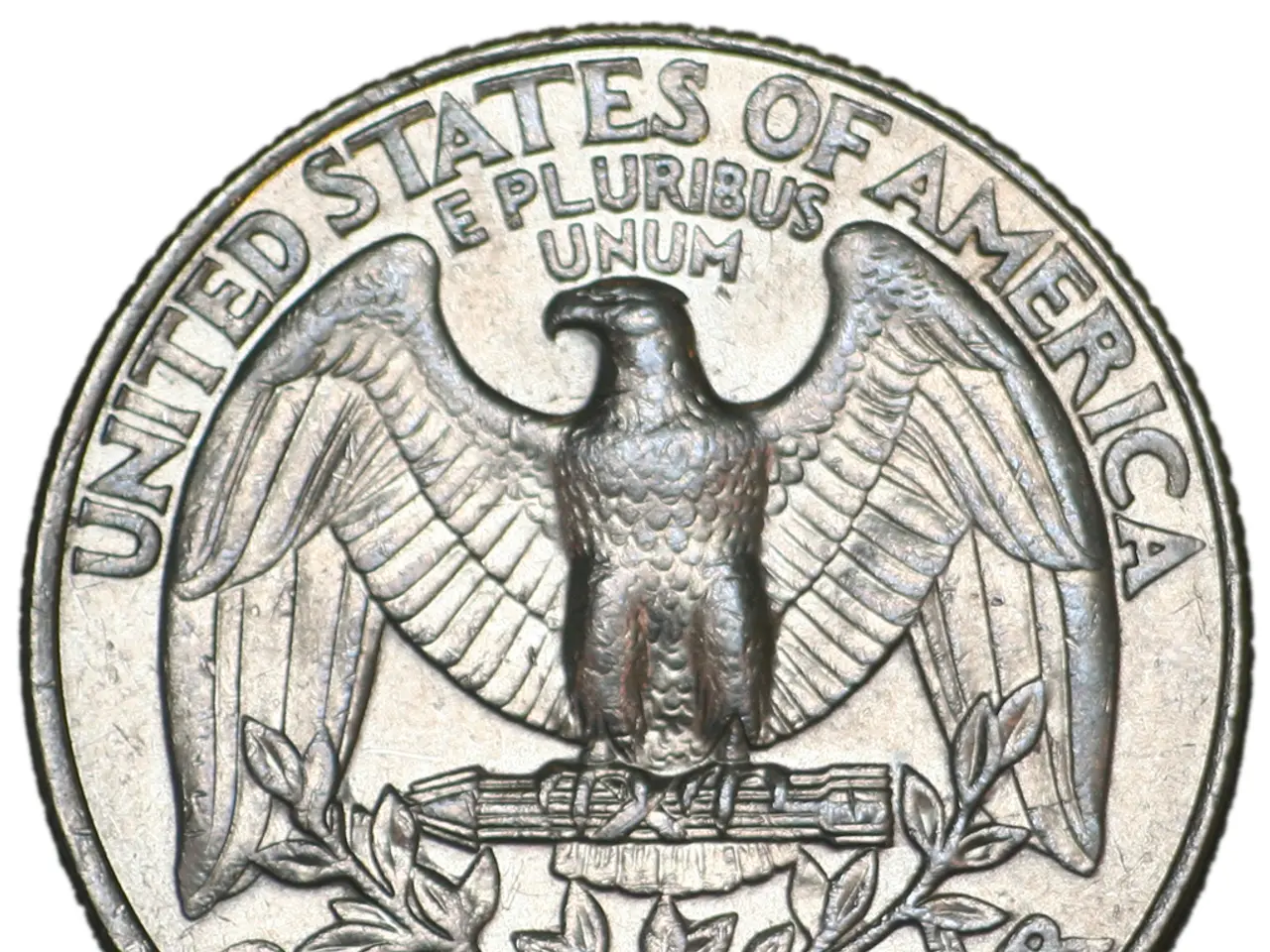Monero network hackers assert triumph in seizing 51% control
In a significant development for the cryptocurrency world, Qubic, a decentralized computing platform, has successfully demonstrated a 51% attack on Monero, the privacy-focused cryptocurrency. The attack, which took place on August 11, 2025, saw Qubic gain majority control of Monero's hashrate, reaching 51% dominance.
The incident, detailed in an excerpt from the Unchained Daily newsletter, resulted in a six-block deep reorganization of Monero's blockchain. This is a scenario where the blockchain replaces the last six blocks with a different set due to finding a longer competing chain. However, despite achieving majority hashrate and demonstrating blockchain reorganizations, Monero's network was not materially harmed, and the attack had limited practical consequences.
The Monero community remains divided over whether Qubic fully controlled the network or only performed limited block reorganizations. Skepticism arose due to Qubic's lack of certain technical proofs and API shutdowns during the event. Nikita Zhavoronkov, CEO of Blockchain, argues that a malicious 6-block reorg on Monero's blockchain, even if short-lived, constitutes a successful 51% attack. On the other hand, Serai DEX lead developer Luke Parker contests that the situation does not constitute a successful 51% attack on Monero.
The incident has reignited concerns about the security of Proof-of-Work (PoW) blockchains and the importance of mitigating miner centralization. The proceeds from XMR mining were used to buy and burn QUBIC tokens, strengthening Qubic's own ecosystem while increasing its hashrate share on Monero. This level of control theoretically allows Qubic to reorganize blocks, censor transactions, and attempt double-spends on Monero's privacy-focused token XMR.
The price of XMR experienced a temporary dip of up to 13% on Tuesday, reaching an intraday low of $244.42. This price drop may be indicative of investor concern over the security of the Monero blockchain. Nikita Zhavoronkov, who has previously warned the Monero community about the low security budget of their blockchain, has also expressed concern about the security of Bitcoin, implying that it may be at risk.
The project deployed a "useful proof-of-work" model that converted XMR mining rewards into USDT. This model boosted incentives and attracted hashrate, enabling Qubic to rapidly grow its share of Monero’s hashing power from 10% to over 51% within about two months.
For Bitcoin, the event underscores that 51% attacks are not just theoretical threats—well-resourced entities can threaten even large PoW networks. While Bitcoin's much larger hash power and network size make such an attack more expensive and difficult, the Monero case illustrates that evolving attack vectors via economic and protocol innovations may necessitate continual security reassessments for all PoW chains, including Bitcoin.
Major crypto exchanges like Kraken temporarily suspended Monero deposits as a precaution but later resumed them with longer confirmation requirements. The Monero community is now considering proposals for hardening the network’s consensus mechanism against 51% attacks, reflecting awareness that miner incentives and centralized hash power pose ongoing security risks for PoW blockchains.
Read also:
- U Power's strategic collaborator UNEX EV has inked a Letter of Intent with Didi Mobility to deploy UOTTA(TM) battery-swapping electric vehicles in Mexico.
- Global Gaming Company, LINEUP Games, Moves Into Extensive Global Web3 Multi-Platform Gaming Network
- Gold nanorod market to reach a value of USD 573.3 million by 2034, expanding at a compound annual growth rate (CAGR) of 11.7%
- Approaching Manufacturing: 2027 Karma Amaris GT Coupé






